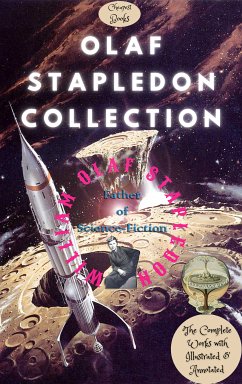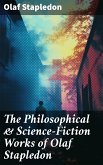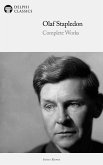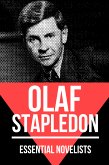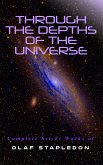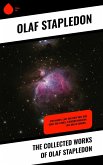William Olaf Stapledon (1886-1950) is one of the great figures in the history of British science fiction. The philosophical depth and imaginative breadth of his novels signified an important stage in the development of the genre, inspiring and influencing many subsequent writers.
As a lecturer for the Workers' Educational Association and The University of Liverpool, Stapledon began publishing academic essays in 1908 and took a doctorate in Philosophy in 1925. He was a relative late-comer to fiction but eventually found in this expansive form a means of exploring his complex ideas of 'community' and 'spirit'.
In 1930 he published his first novel, Last and First Men, followed by Odd John (1935), Star Maker (1937) and Sirius (1944). Although Stapledon wrote other works of fiction, these are the novels that made the greatest impact during his lifetime and which continue to receive widespread critical acclaim.
This Collection included:
· The Man Who Became a Tree
· A Modern Magician
· East Is West
· Arms Out of Hand
· A World of Sound
· The Flames
· The Road to the Aide Post
· A Man Divided
· Four Encounters
· Death into Life
· Last and First Men
· Last Men in London
· Odd John
· Sirius
· Star Maker
· Nebula Maker
· The Seed and the Flower
· Far Future Calling
Dieser Download kann aus rechtlichen Gründen nur mit Rechnungsadresse in A, B, BG, CY, CZ, D, DK, EW, E, FIN, F, GR, H, IRL, I, LT, L, LR, M, NL, PL, P, R, S, SLO, SK ausgeliefert werden.

